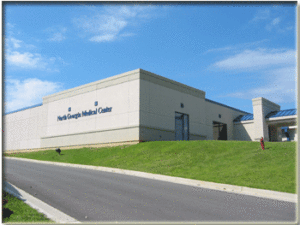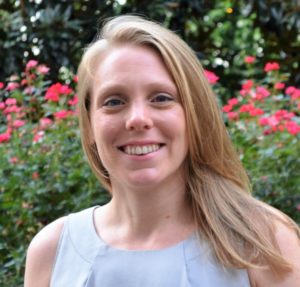My expertise lies in public health, not in finance or investments. However, it is my understanding that in order to reap rewards, one first has to invest. One example is my retirement account. I give up a small amount of money out of each paycheck so that I can experience a secure retirement down the road.

This type of thinking can also be applied to the re-energized debate about closing the coverage gap here in Georgia.
Under current rules, many low-income Georgians can’t qualify to buy discounted health insurance through the ACA exchange but are also ineligible for Medicaid. Caught in this gap, they are left uninsured. Extending coverage to these people would be a smart investment in our state’s workforce, its health care sector and its economy. And just as it is best to start saving early in life, we will see the greatest rewards if we invest now.
First, it is important to understand who falls into Georgia’s coverage gap, and why health insurance is so important not only to them, but also to the state as a whole. This group includes young people just starting out, working parents, and veterans.
More than half of the people in the gap are working, but they have jobs that do not pay high wages or provide health benefits. Often these are the very kinds of jobs that are basic to Georgia’s economy, like construction, food service, child care, and trucking. Of those people in the gap who are not employed, many are doing work that our society values, like taking care of children or aging relatives, or going to college. Investing in health insurance for these populations would allow them to maintain or restore their health so they could continue to be productive members of the community.

Individual Georgians would not be the only beneficiaries of investing in health insurance. Our state has seen five rural hospitals close since 2013 and has struggled to attract doctors to the regions of Georgia that most need them. The high rate of uninsured Georgians means that our hospitals are burdened with providing a large amount of free health care, and that doctors have to struggle to support their practices.
While it is not a silver bullet, empowering low-income Georgians with health insurance through expansion of the Medicaid rolls would be a vital first step in supporting rural hospitals and attracting doctors. This dynamic is best illustrated by a Georgia State University study that predicted this investment in health coverage would create more than 50,000 jobs across the state, many in the health care sector, but also in other areas like hospitality and real estate.
Perhaps the most divisive issue in the coverage gap debate is the use of state dollars in Medicaid expansion. To invest in this health insurance for low-income Georgians, Georgia will have to use some state funds, but federal dollars will pay for 90 percent of the costs. For every dollar that Georgia puts in, nine federal dollars will come into the state. Many of our lawmakers routinely advocate that we run Georgia more like a business. I have a hard time imagining any business declining such a 9-to-1 match.

Additionally, our tax dollars are collected by the federal government just the same as they are in Kentucky or Arizona. However, Arizona, Kentucky, and 29 other states are investing in health by extending health coverage to their low-income residents and reclaiming their federal tax dollars, while Georgia’s dollars sit unused.
Evidence shows these other states’ investments have been worthwhile. A recent study by the Robert Wood Johnson Foundation found that states that have made this investment have generated state budget savings and increased revenues which can be used to offset much, if not all, of the costs of this expansion in health care coverage. For example, in their 2015 fiscal years, Kentucky saved $83 million and Arkansas is estimated to have saved $131 million.
When I decide if and how much money to put into my retirement account, I am deciding how to make the best use of my available resources. The decision to invest in health care coverage for low-income Georgians requires that we make similar choices as a state.
Closing Georgia’s coverage gap and extending health coverage to low-income Georgians would provide maximal benefits — healthy people and families, a strong workforce, a robust health care sector, and a sound state economy — given the resources we have available.
Laura Colbert, MPH, CHES, is the Director of Outreach and Partnerships at Georgians for a Healthy Future, a consumer health advocacy and policy organization. The organization convenes Cover Georgia, a coalition of more than 70 organizations that advocate to close Georgia’s coverage gap by expanding Medicaid.

